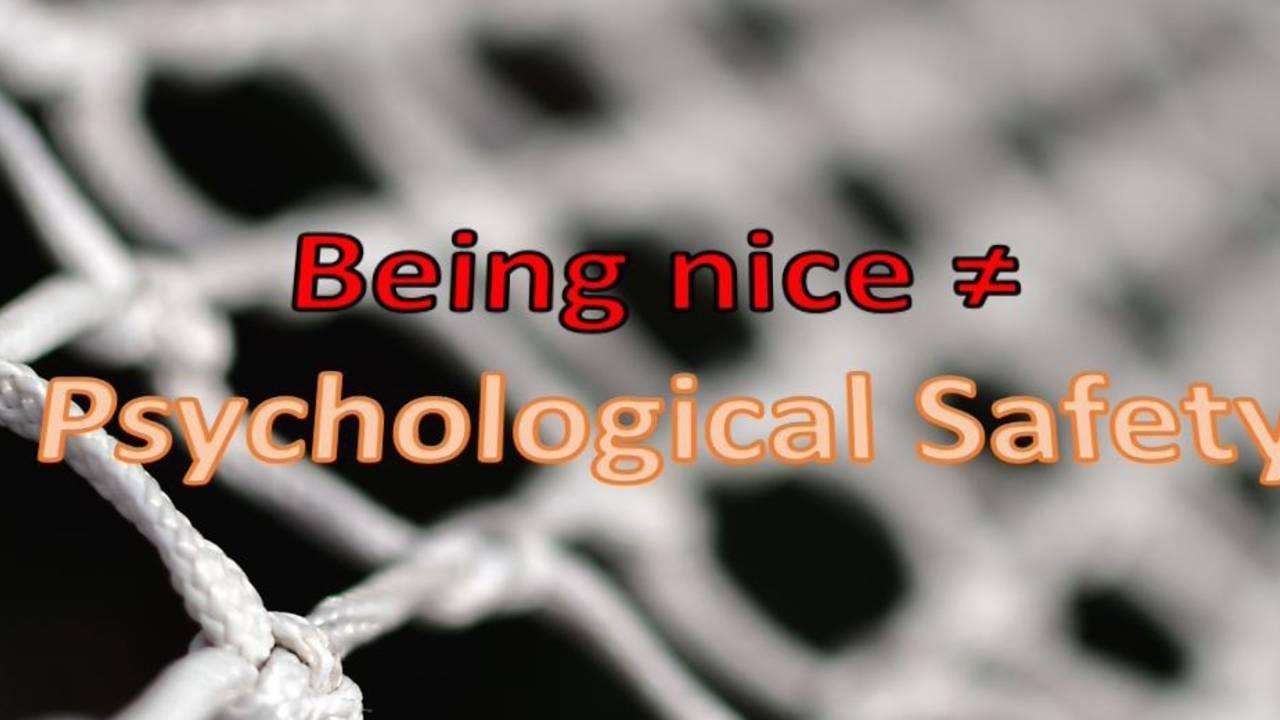
Goleman wrote this week in an HBR article with regards to emotional intelligence: “…one of the most persistent things I see people get wrong about the concept is that it equates to being “nice.” But it doesn’t, and misunderstanding this can get people into trouble.“
Some people have the same misunderstanding about psychological safety.
If team members misinterpret safety to be about prioritizing each other’s happiness over all else, this might result in a seemingly pleasant work environment. When staff suppress legitimate concerns with what others are either doing or proposing to do to avoid coming across as being unpleasant it can lead to issues such as:
- Health and safety incidents. Lets say a team member, Bob, insists on using an electrical space heater to warm his office workstation area in the winter months. This is not permitted by facilities management in order to avoid potential fires. Bob’s manager, Sally, and his cubicle neighbor, Jim, are both aware of the space heater and the fact that its usage is not permitted, but are unwilling to request that Bob remove it. They value short term preservation of the “nice” team atmosphere more than the potential long term benefits of reducing physical risk.
- Contributing to increased staff frustration. In the previous example, lets say that Jim is someone who likes to follow the rules and it really is bothering him that Bob is not doing so. Jim might be sufficiently self-aware to acknowledge his reluctance to directly challenge Bob, but would expect that Sally as their reporting manager should have already done so. Jim’s respect for Sally will decrease and, over time, he might start genuinely disliking Bob. Such perceptions will reduce team morale as well as the team’s performance. In an extreme situation, if Jim gets too frustrated he might even request a transfer to a different team.
- Groupthink impeding experimentation and true innovation. Creativity demands the type of healthy interpersonal conflict which emerges when there are differences of opinion on how to proceed. But if staff are concerned about coming across as being overly argumentative or un-supportive of their peers ideas, those ideas will be implemented without challenge which is likely to result in mediocre or even failed outcomes.
- Throttling personal development. Self-awareness is a catalyst for personal growth but constructive, candid feedback is usually more effective. It helps individuals to become aware of the need for personal change sooner than they would have otherwise. It also helps them on an ongoing basis by providing the reinforcement required to sustain a behavioral change.
In her Radical Candor™ framework, Kim Scott calls this dysfunction of co-workers prioritizing niceness over other positive behaviors as Ruinous Empathy™ and it runs counter to the essence of psychological safety which is to remove fear from the workplace.
If we are afraid to be seen as “not nice” by providing feedback, challenging a decision or taking a stand then how can we say that we feel safe?
This post is presented with the permission of the author and the original post can be found here.
